The Sahitya Academy and Sadhana Trust have jointly organized a special symposium on October 7th to discuss the literature of the late G. P. Pradhan (and on October 6th for the literature of Vasant Bapat) at the S.M. Joshi Socialist Foundation's auditorium in Pune. In the year 2021-22, Sadhana Weekly celebrated former editor, renowned poet G. P. Pradhan’s centenary. As a result, Sadhana conducted various programs and events throughout the year. This symposium is a part of that celebration wherein some eminent scholars and their contemporaries will discuss Pradhan's literary career. In this context, we are publishing this article which highlights some aspects of G. P. Pradhan's personality. This is the English translation of the article published in the 'Lalit Diwali Issue' in 2021, marking the end of G. P. Pradhan's birth centenary year.
The birth centenary year of Ganesh Prabhakar Pradhan, who lived 88 years from 26 August 1922 to 29 May 2010, has begun. Freedom fighter, renowned professor of English, Rashtra Seva Dal activist, Samajwadi Party leader, member of Legislative Council, editor of Sadhana Weekly and prolific writer in both Marathi and English can be said to be his septenary identity. His family was originally from Murbad (District Thane), but his father was employed in the revenue department, so when he was in Satara, G.P. was born. He did his primary education at New English School, Satara and his secondary education at Modern High School, Pune. Then B. A. from Fergusson College. Meanwhile, he participated in the 'Chale Jav' movement of 1942 and served imprisonment. He completed his MA from Ferguson after his release from prison and started teaching English there.
He worked as a professor of English for twenty years from 1945 to 1965. During those two decades, he worked to train young activists of the Rashtra Seva Dal and at the same time established close relations with Samajwadi Party leaders and activists. But he had decided that no political party should join as a code of ethics for professors. Of course, while working as a professor, he had experienced electoral politics while being elected as a member of the Senate of Pune University. And on that occasion, his contacts with students, professors, directors of educational institutes from many places across the state increased..
Consequently, in 1965, when he decided to resign from his professorship and devote himself full-time to the Socialist Party, he was asked to contest the Legislative Council elections from the graduate constituency and was easily elected on the basis of his network of contacts from the previous two decades. After that he contested and won two more terms. That means he was a member of the Legislative Council for 18 years. He also held the post of Leader of the Opposition in the Legislative Council for the last two years. He was 62 when he declined to seek a fourth term in 1984.
He then decided to retire from active politics and work for Sadhana Weekly for a few years. Soon thereafter he (along with Vasant Bapat) became the editor of Sadhana Weekly and remained in that position for the next 14 years, till mid 1998. After the age of seventy-five i.e. 1998 to 2010 can be called the true retirement period of his life, because during that time he did not take any organisational work responsibilities. But it was a period of austere retirement with support to some movements and agitations, speeches in some meetings and ceremonies and writings on topics that marked a long time - but were left behind due to lack of time.
G P Pradhan wrote one and half a dozen Marathi books and a dozen English books. He himself has said that, 'My writing has mainly been in the context of the freedom movement and the movements in this country after independence. And wherever I worked, I was a social teacher.' A look at all his books shows that both his above statements are absolutely true. Not only this, but because of the need that arose in those periods, or because he got a specific excuse, or because the proposal worked, he wrote it. Therefore, if some events and periods that coincided in his life and in the context of the country are put forward, his writings and the books that came from it can be understood better.
When he started working as a professor for seven to eight years, the birth centenary year (1956) of Lokmanya Tilak and Gopal Ganesh Agarkar came up. Of course Pradhan Sir was drawn to it, as were many others; he was attracted towards Tilak and Agarkar. Meanwhile, he got the task of editing the selected articles by Agarkar, for the Sahitya Akademi. By classifying Agarkar's articles in the 'Sudharak' subject wise and selecting what should be said to be representative of them, the book 'Agarkar Lekhsanragha' came with an analytical introduction. It was due to his birth centenary, but the book had to be published in 1960. The work of underlining the importance and uniqueness of Agarkar's intellectual-normative thinking, the value of individual freedom and the social reform intended by him came from that book. Agarkar was close to Pradhan Sir in terms of ideas,
However, at the same time, the task of writing an English biography of Lokmanya Tilak was entrusted to Pradhan with his friend Professor of English A. K. Bhagwat ( both of whom were then in their forties ), had two reasons. One - until then, two descriptive and prestigious biographies of Tilak, written by N. C. Kelkar and N. R. Phatak, were published, but they were written in the pre-independence period. And the second reason was that Acharya Javadekar had shown the strong thread between Tilak's politics and Gandhi's politics in his book 'Adhunik Bharat'. So Pradhan, who participated in Gandhi's movement and was influenced by Gandhian thought, felt that he should take that opportunity to understand Tilak. Moreover, a good English biography on Tilak had not been published till then.
As a result of all this, Pradhan and Bhagwat took the guidance of Acharya Javadekar to write the book. Meanwhile, the All India Congress Committee announced a competition to write Tilak's biography in English. Thus Pradhan and Bhagwat's book became more extensive. The prize of Ten thousand rupees for the first place in that competition was divided into three books , written by S.L. Karandikar, T.V. Parvate and Pradhan - Bhagwat. Pradhan and Bhagwat's book received a short introduction by the then Vice President of India Sarvepalli Radhakrishnan. But that book too was published much later, after Tilak's birth centenary year, in 1959 by Jaico Publishing House (reduced by one third) as 'Lokmanya Tilak : A Biography'. Because of that experience, Pradhan-Bhagwat did not consider doing a Marathi edition of the book (the complete original draft was later published by Jayco in 2008). After that, the National Book Trust asked Pradhan to write a short biography of Tilak in English and Marathi, so that idea was also shelved.
However, after almost 65 years, when Tilak's death centenary year came to an end (in 2020), Sadhana Prakashan decided to bring that English book by Pradhan and Bhagwat into Marathi. The work of translation was entrusted to Avadhoot Dongre and on Tilak's 101st death anniversary, a six and a half page Marathi book titled 'Lokmanya Tilak Charitra' was published. The Marathi version was Foreword by Dr. Sadanand More who wrote the book 'Lokmanya Te Mahatma'. In the preface, More highlights two points that distinguish the book : This book is written by the authors who were inclined towards G. G. Agarkar. And secondly, the book is written with Asia as the focus.
Apart from this, two more points come to mind after reading this book. One, the book is written with an English reader in mind, and two, the study done during the writing of the book made Pradhan and Bhagwat's view towards Tilak more objective and Pradhan's view towards politics more developed. If we want to confirm this, we have to turn to two short books written by Pradhan Sir in his later life. Those books are 'two one act plays written on Tilak' and 'three lectures on Tilak.' These two short books come almost fifty years after the 1956 English biography. Therefore, there is a scope to say that the writing of Tilak's biography had a very serious impact on Pradhan's thought process.
Pradhan left his professorship in 1965 and decided to join the Samajwadi Party and enter full-time politics. Three short books written by him in the following seven-eight years namely 'Hajipir', 'Kanjarkot', and 'Sonar Bangla' are important. In a limited sense they can be called travelogues, but it would be more appropriate to call them 'reportage'. 'Hajipir' is a book written in 1965 when the India-Pakistan war broke out on the border of West Pakistan and interacted with soldiers and civilians. In fact then he went to the border as a correspondent of Newspaper Kesari and later it is a book of articles written in Kesari. Then in 1968, when the Indian government decided to give some land on the Kutch border to Pakistan as per the decision given by the International Arbitration, both the Samajwadi Party and the Jana Sangh went on a satyagraha to oppose it. By participating in that satyagraha, after returning from two weeks in jail, Pradhan wrote a short column in Maharashtra Times, collection of that articles is the book 'Kanjarkot'. Then in 1971, when the Bangladesh Liberation War took place, Pradhan went to the eastern border of India and interacted with soldiers and civilians. Articles on it were published in Daily Sakal and then the book 'Sonar Bangla' came out of it.
In these three books Pradhan is seen as a patriot, a democracy-loving citizen, a socialist activist, as well as a writer who is a part of fine literature. All three books were well-received at the time, but remained out of print for the next three decades, but as December 2021 marks fifty years for the 1971 India-Pakistan war, new editions are coming out from Sadhana Prakashan.
When the National Emergency was imposed in India in 1975, Pradhan Sir was among the opposition leaders who were jailed for two years. A small book was written by him while in Yerwada jail and the seed of a big book was planted in his mind. That little book is 'Bhakri Ani Swatantrta'. That book is not independent, it is based on the English book 'Springtime of Freedom' by economist William McCord. That English book was given to him by G.G.Parikh. "In order to achieve the economic development of developing countries, there is no need to hesitate about the freedom of those countries, in fact, if the economic development and political freedom are separated, the economic development is also hampered", McCord has put forward this theory. The G .P. Pradhan was impressed by that. And then that book from a Euro-American perspective, he gave five lectures (before that he wrote them) to explain the Indian perspective to youth activists in prisons. While writing it, he was helped by his friend Sadananda Varde, a professor of economics. Of course, while writing that book, Pradhan was aware that 'Economics is not his subject' and he has expressed it as such. And then he never touched the writings related to economics. Leaving aside how effective the content of Pradhan's book is, the basic theme or theory is still important then and even today!
While in jail, Pradhan sir enjoyed closer association with leaders and activists of various political streams. So a big political novel started taking shape in his mind. Vaman Malhar Joshi's novel 'Ragini' i.e. 'Kavya - shastra -vinod' had a great impact on Pradhan at a young age. Therefore, the political novel in his mind was a kind of ideological discussion. The book written during the next five years is 'Sata Uttarachi Kahani' (which he called 'Political Bakhar'). 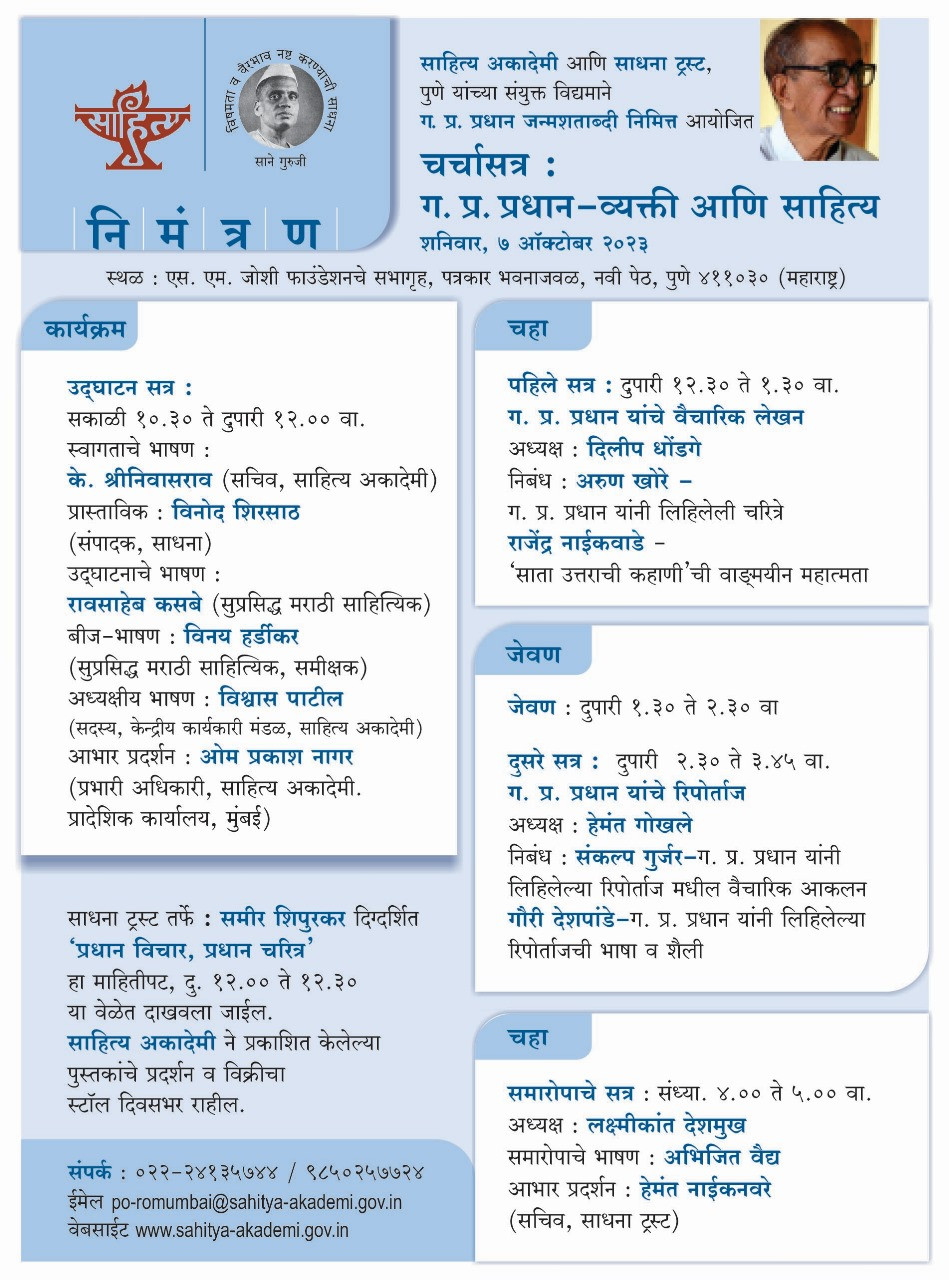
In this book, the progress of seven major schools of thought in the country from 1940s to 80s is painted through seven characters. The seven political currents are socialist, communist, Hindutva, Gandhian, Royist, Ambedkarite and Revolutionary (Patri Sarkar). In 1940, seven honest and purposeful friends from Pune in their twenties joined the above seven different currents and remained active for the next forty years. The book is a poignant discussion and analysis of the major events that took place in the state, country and international levels during that time, and how those currents responded or how their roles remained. Literary people have asked, and rightly so, how all the characters in that book are so honest. Moreover, Pradhan himself has recorded that the book does not have the profile of the Congress which was at the centre of the country at that time. But still, it is his best book. Because in the context of India, there is hardly any other book in Marathi, and hardly any other language also , to understand those seven currents of that 40 years.
'Sata Uttarachi Kahani' should be translated into English - such suggestions came from time to time, but Pradhan Sir did not take them to heart. During his last years, his friend and student Shrikant Tambe translated it and the National Book Trust published it as a 550 page book titled 'A Tale of Seven Answers'. But by then Pradhan Sir had passed away.
It is evident that 'Sata Uttarachi Kahani' would remain Pradhan's 'Prime Balance' and probably that is why he took to writing the short book 'Aatha Uttarachi Kahani' during his last days. The book has been written keeping the eight currents of thoughts central to the period between 1980 and 2005 , quarter century after 'Sata Uttarachi Kahani'. An attempt has been made to present how the response of five political currents namely Congress, Socialist, Communist, Bharatiya Janata Party, Republican Party and three sub currents namely Sarvodayi, Naxalites and Muslim women activists to the events of that quarter century.
Pradhan Sir was in his sixties when 'Sata Uttarachi Kahani' was written and he gave five years to write the book. He was eighty-five years old when he wrote 'Aatha Uttarachi Kahani' and he wrote the book in just five months. So it was obvious that there would be a big difference in the quality of the two books and he was well aware of it. But still one point remains, that if one wants to understand the political and social causes of the country for 65 years from 1940 to 2005, these two books of Pradhan should be read at least once by the scholars. (Both these books came from Mouj Prakashan, Mumbai)
After retiring from active politics in 1984, Pradhan took up the editorship (along with his friend Vasant Bapat) of Sadhana Weekly. Over the next 14 years, editorials in Sadhana on political issues were mainly written by Pradhan. During the same period, he used to go to many meetings and functions in Pune as chief Guest or Chairperson. The speeches and relevant articles on that occasion were published in Sadhana and other newspapers, but those writings did not come in book form. However, during that time he got excuses to write three English books. Two of the proposals came from Sahitya Akademi. One- when the birth centenary year of Ram Ganesh Gadkari came, to write a small biographical book on him and the second proposal may have been given by Pradhan Sir, that is to write a small book on Sane Guruji; because Guruji's birth centenary was also near.
The third book, however, was longer. In 1987, when the country was about to complete 40 years of independence, an all-India competition to write an English book on the history of the freedom struggle was announced. For that competition, Pradhan wrote a book 'India's Freedom Struggle', which won an award and was published in 1990. Pradhan himself made an expanded Marathi version of that book, which was written mainly for the students of schools and colleges, and that book was published under the name 'Swatantrya Sangramache Mahabharata'. Several editions of it came from Sadhana Prakashan. (Later the Hindi translation of that book also came.)
The 90-year freedom struggle of the country from 1857 to 1947 has been covered in that book. He described the contributions of revolutionaries on one side and 'Tilak Parva' and 'Gandhi Parva' on the other. In this book, Subcurrents within the Congress are also noted and the Indian freedom struggle is interpreted in the context of the First and Second World Wars. Moreover, the appendix also contains a chapter each on Hyderabad Liberation War (1948) and Goa Liberation War (1960). That is, it is a book that provides an overview of a full hundred years. Pradhan himself has written that, "while talking with young activists in Rashtra Seva Dal, I used to study new sources and prepare for presentations in a simple way to explain freedom struggle. It was useful in writing this book."
The last phase of Pradhan Sir's life was twelve years from 1998 to 2010. During that time a dozen of his books were published. One of them is the biography and work of Jayaprakash Narayan. That book came out from Sadhana Prakashan in 2001, the birth centenary year of Jayaprakash. When the birth centenaries of S.M.Joshi and N.G. Goray came in 2004 and 2007 respectively, books on them were published by the Maharashtra Rajya Sahitya ani Samskruti Mandal, in the series 'Maharashtrache Shilpkar'. Meanwhile the short book 'Satyagrahi Gandhiji' came from Prestige Publishing House , Pune. For Pradhan, S.M. and Goray were political gurus, Jayaprakash was a role model in public life and Gandhiji was like a god. Therefore, while writing about those four personalities, it is natural that Pradhan's mind is overwhelmed, yet it has been written objectively.
In the last period, Dr. Babasaheb Ambedkar was taken to read by him. After reading the volumes edited by Changdev Khairmode of Ambedkar's writings, Pradhan Sir wrote a column 'Dr. Ambedkar in his own words' in Sadhana Weekly in 2006, followed by the book. It cannot be called the independent writing of Pradhan, but it somewhat alleviated his regret that he had not been able to write anything about Ambedkar. In fact, while writing it, the sense of guilt in the minds of the Pradhan's might have lessened or the sense of duty might have prevailed.
Something similar happened with the book 'Two Aspects of Indian Politics: Democracy and Socialism'. Pradhan Sir, who believes that both democracy and socialism are his life's loyalties, felt the backwardness of Indian society on both fronts in recent times, so he wrote the book. But he felt that he was having trouble understanding the rift between the two and finding a way forward, and in the meantime his health had begun to fail. So that book is incomplete, unclear.
During this period he wrote two more short books in English. One is 'Acharya Javadekar : Satyagrahi Socialist' and the other is 'Letters to Shivani'. In the first one, an attempt is made to show the core of Acharya's thinking, while in the second book, he presents the core of Sane Guruji's book 'Bharatiya Sanskriti', in a very simple way, in the form of a 'letter' to his granddaughter (who is studying in English medium). In writing both these books, the sense of duty to put out what we have accumulated and is somewhat important and useful seems to have prevailed and is particularly welcome.
Last two books not only draw attention to an important core element of Pradhan's personality, but also regret that he neglected it due to the pressure of politics. One of them is 'Correspondence with Tolstoy'. In 2006, he wrote a 16-part series for the Weekly 'Sakal' and later it came out in book form from 'Sadhana Prakashana'. In his youth he had read many works by the Russian writer Leo Tolstoy and re-read them in his later years. These are touching and poignant letters from it. The book was later translated into English by Pradhan Sir, published by Popular Prakashan, Mumbai, and then into Russian also. Another such short book is 'Lekhaniche Lalit'. It has two sections. The first section contains interesting articles on seven of Shakespeare's plays. While the second section contains seven stories, three of them are based on Somerset Mom, Andre Morva and Chekov's stories, while four are independent. From these two books Pradhan Sir's command on English literature can be seen and it can be guessed that he was a student-loving professor.
A very important book in the last phase of Pradhan's life is his autobiography 'Mazi Watchal'. In this highly readable book, he has made a running commentary of his life in an interesting manner. When he was a student, he used to recite saints' stories for her mother, that time he influenced by biographer Mahipati, his lucid and lush Marathi language. And in high school, the influence of Y.G. Patwardhan, an English teacher, fell on Pradhan . And the reasoning behind his accuracy and fluency in both Marathi and English languages comes into play. At a young age V.S. Khandekar's novels had a profound influence on him, we find the source of his lofty idealism in it. During this period he was influenced by the novels of Charles Dickens, resulting in a soft corner for grassroots groups. Sane Guruji chased them away, S. M. and Goray initiated socialism, Gandhi gave vision of life. It also shows how exciting two decades of professorship and 18 years in the Legislative Council must have been, and so much more. When read in its entirety, the book Mazi Watchal provides an excellent example of how candid and transparent self-report can be. What is special is that in this self-narrative, he has presented his limitations and abilities so precisely that the question 'what will be criticised about him now' comes to the mind of the readers. The English version of this book has been abridged by Pradhan himself. Its title 'Pursuit of Ideals' is accurate and more descriptive.
(Translation : Team Kartavya)
- Vinod Shirsath, Editor, Sadhana
kartavyasadhana@gmail.com
वरील लेख मूळ स्वरूपात मराठीतून वाचण्यासाठी येथे क्लिक करा.
Tags:Load More Tags

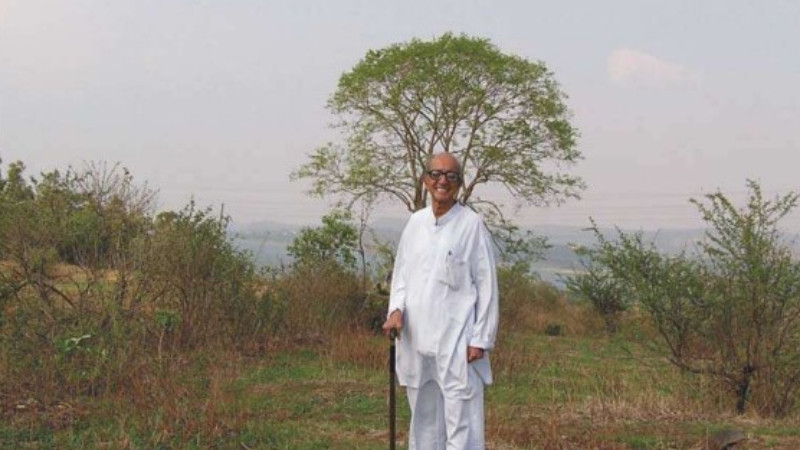

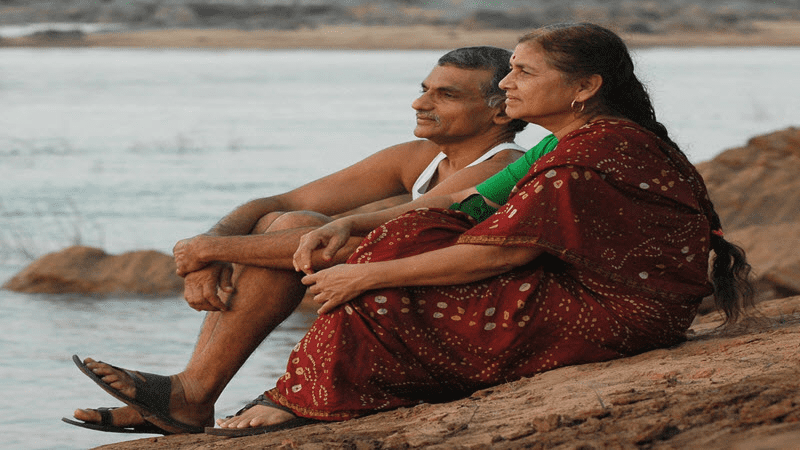
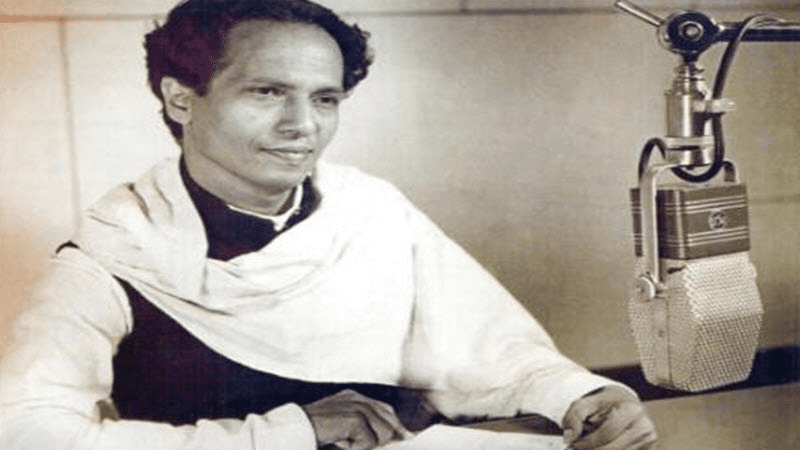

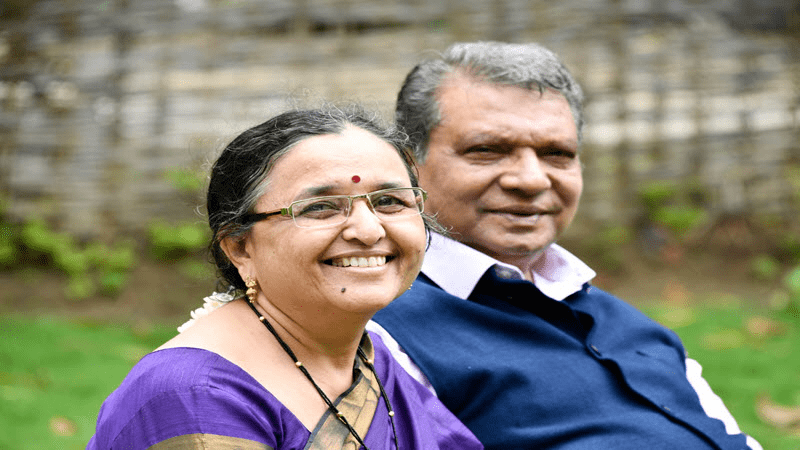
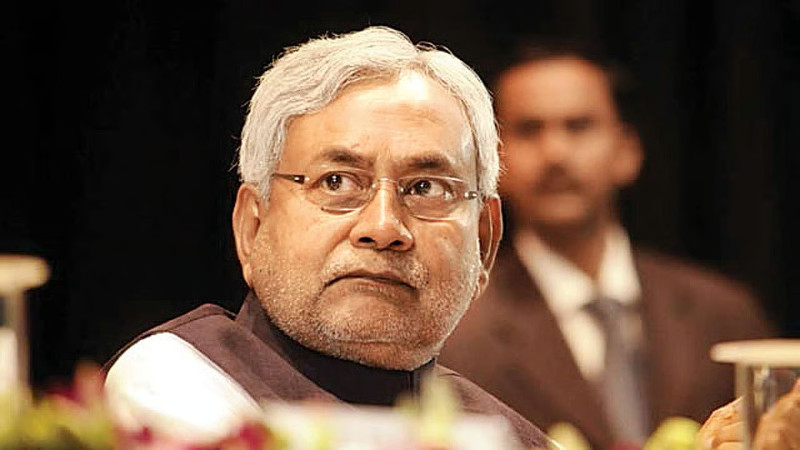
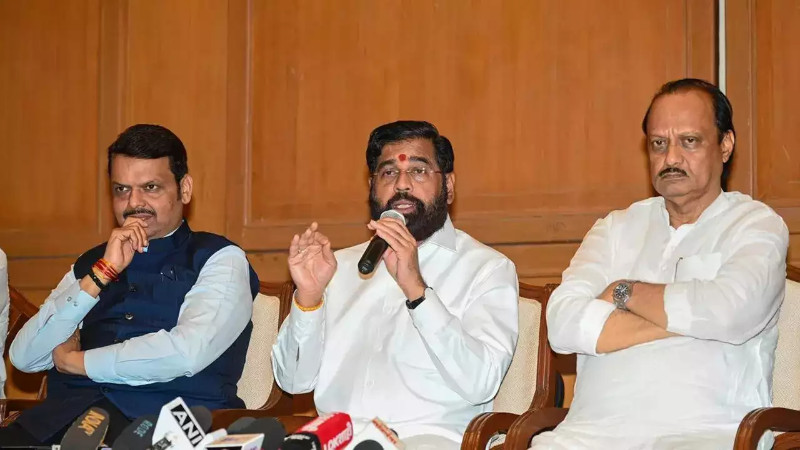
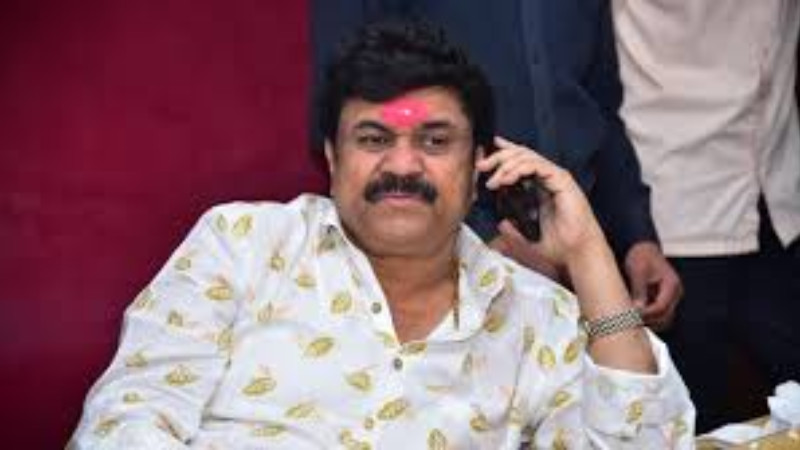
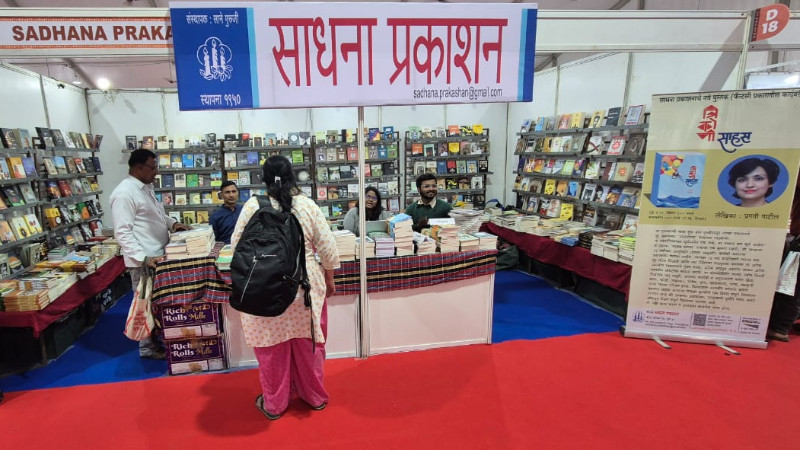
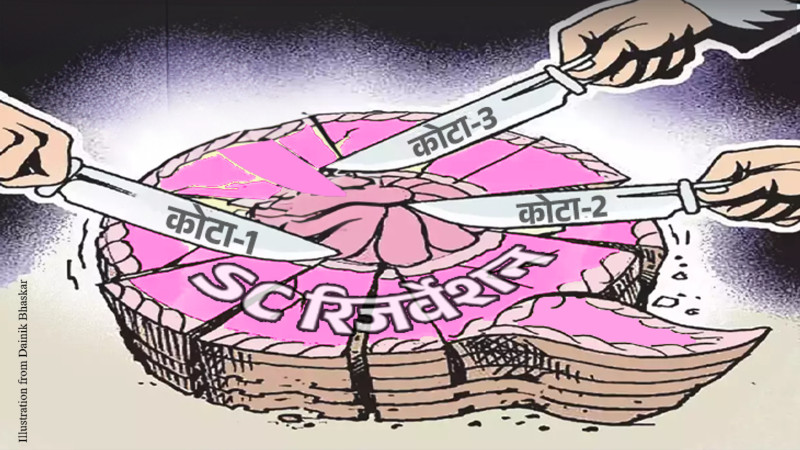
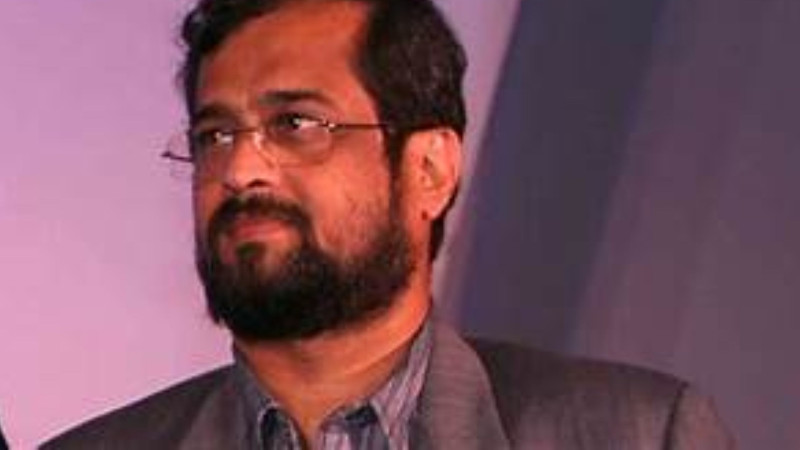

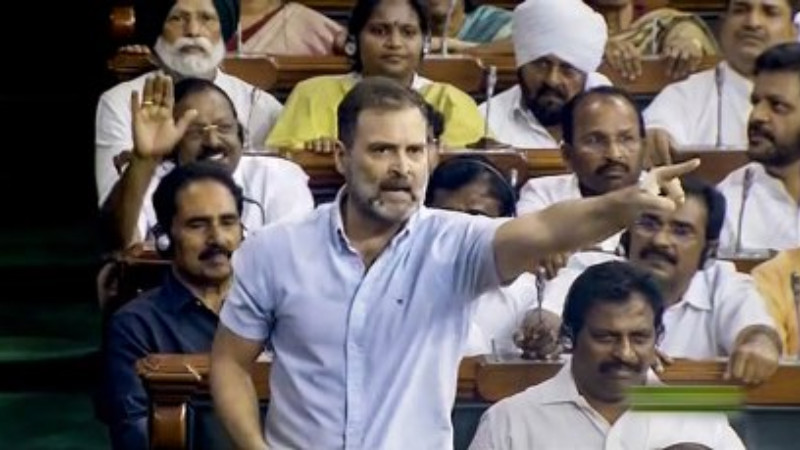
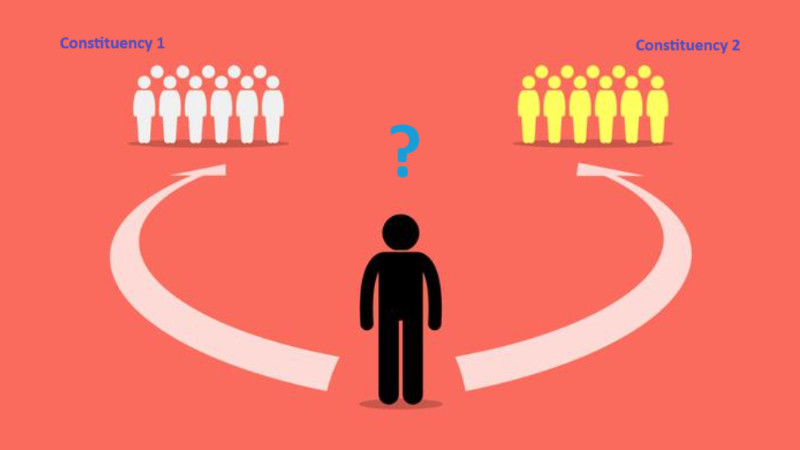
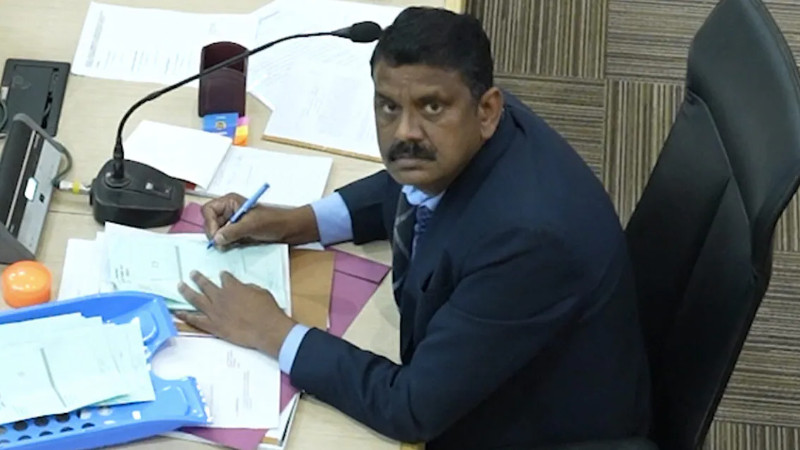
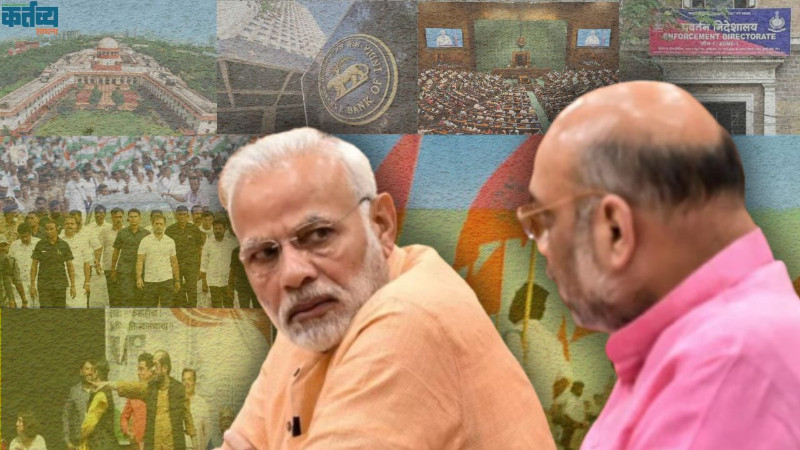
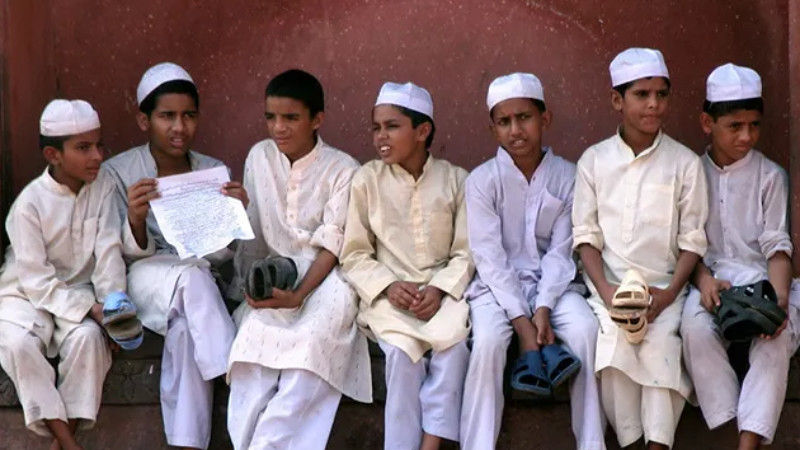
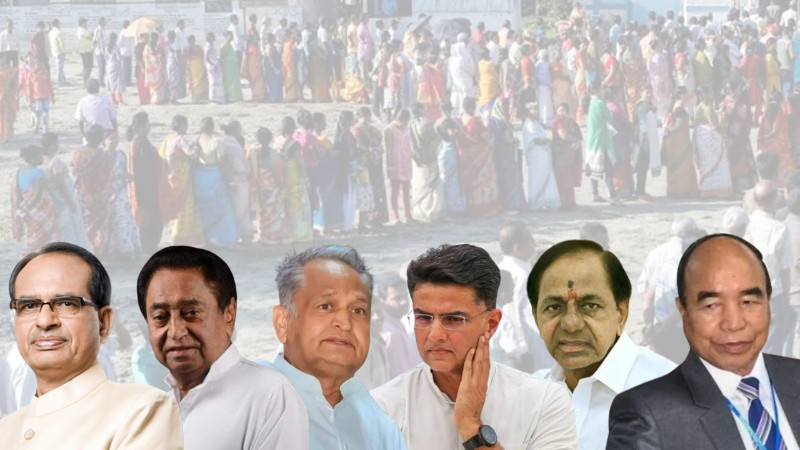
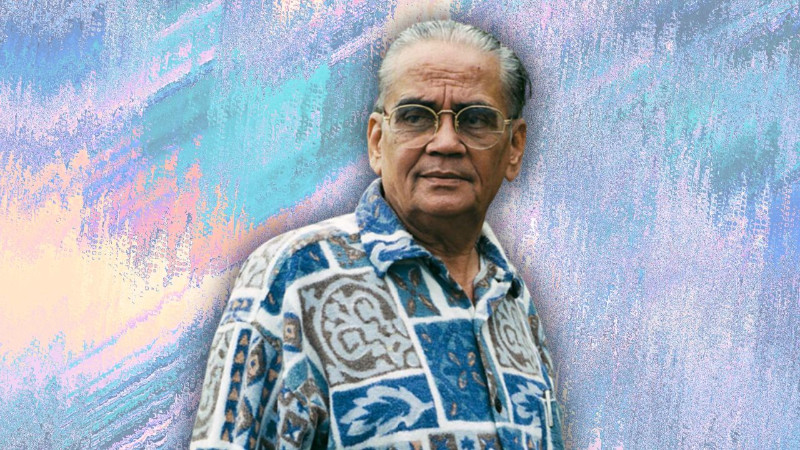
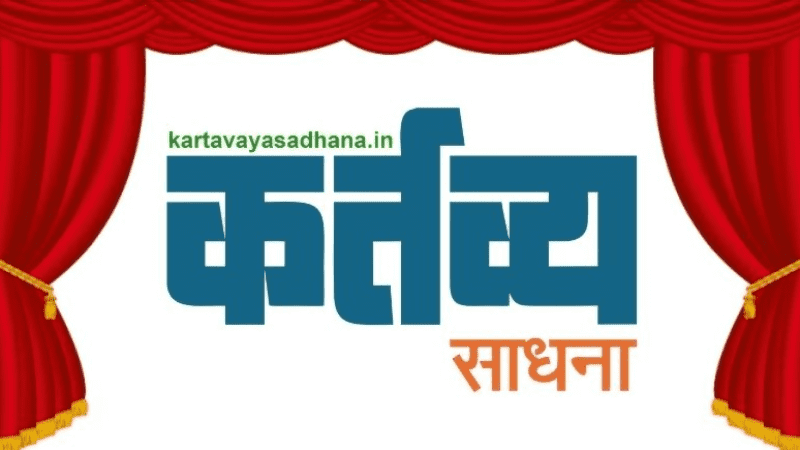
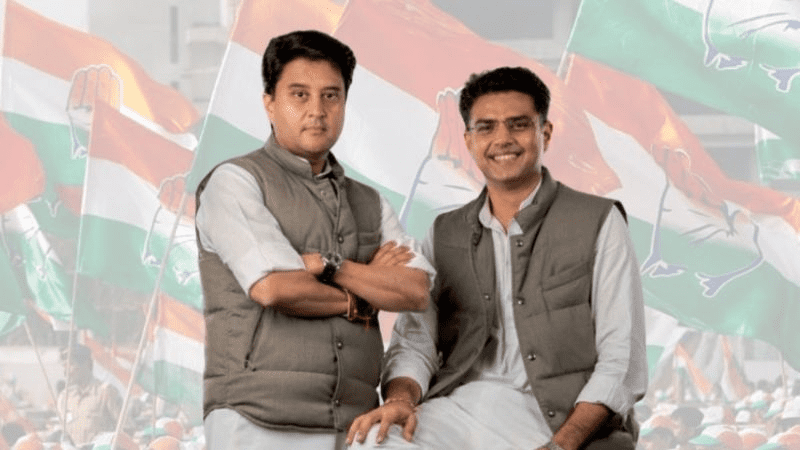
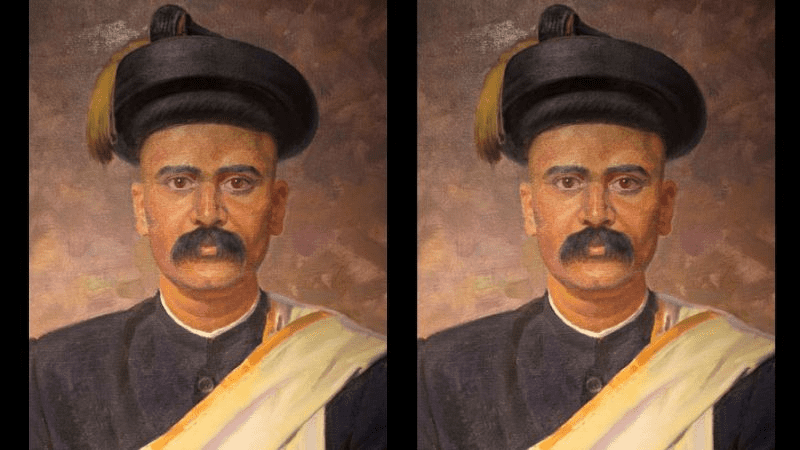
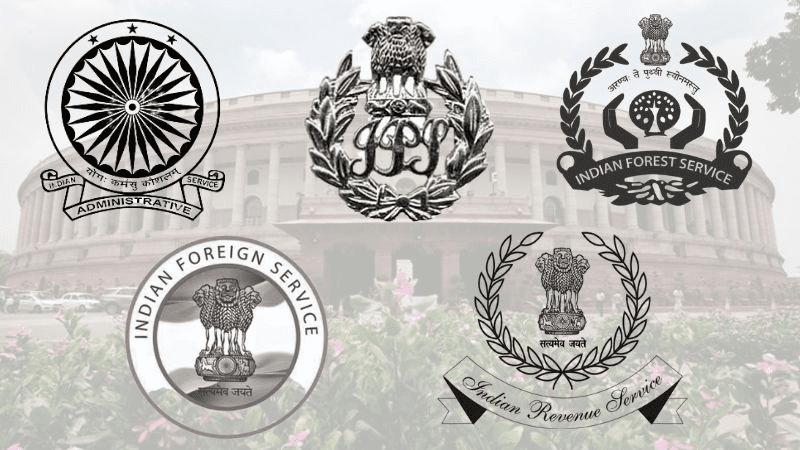
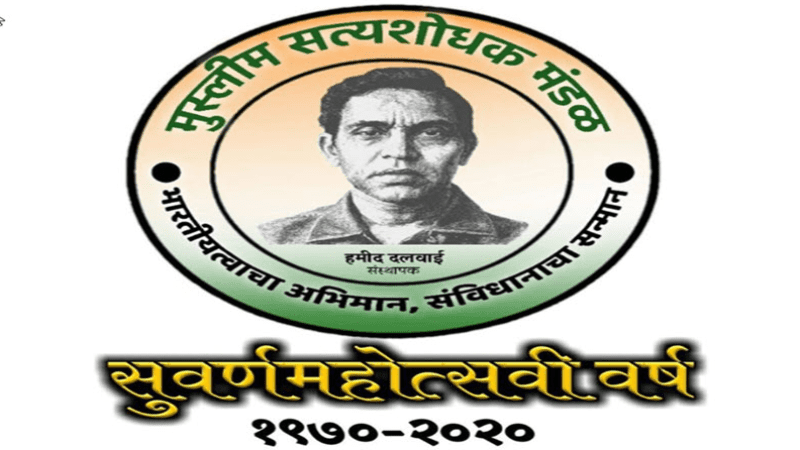


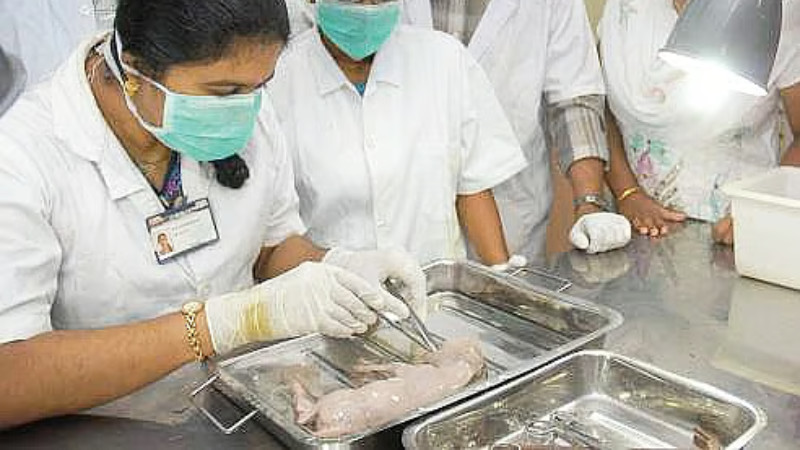
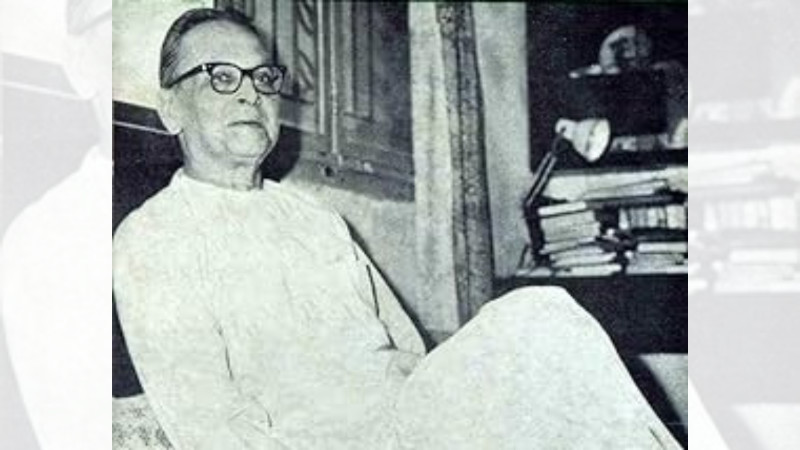
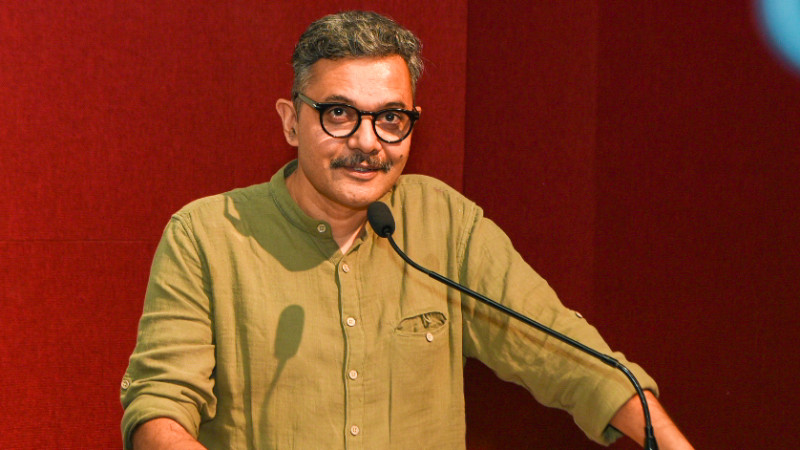
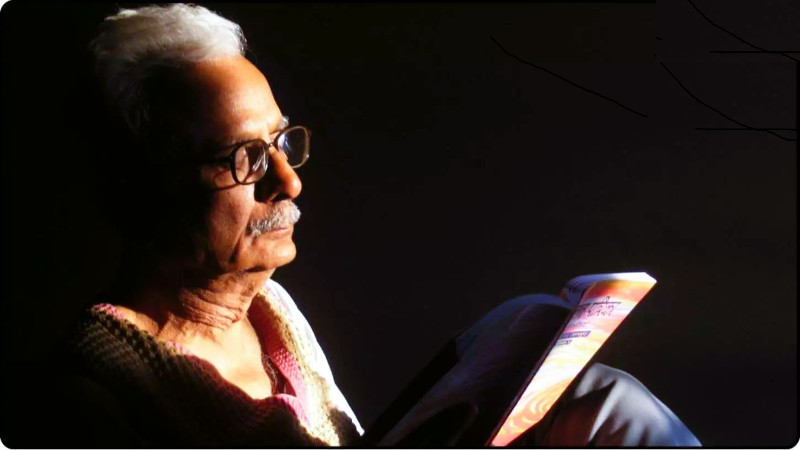
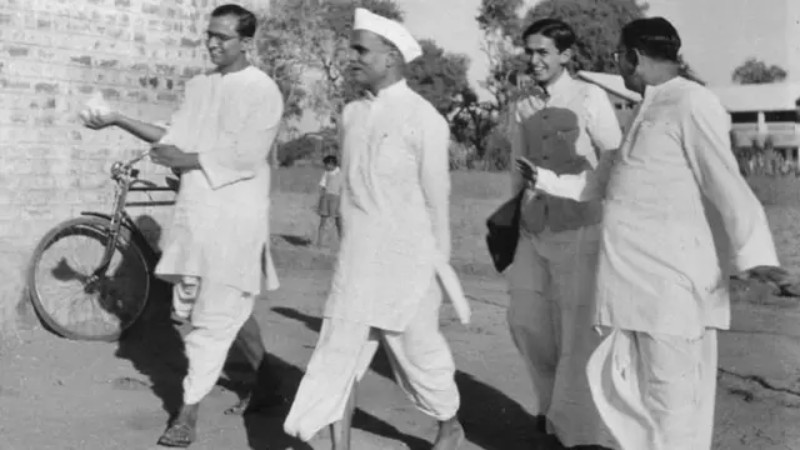
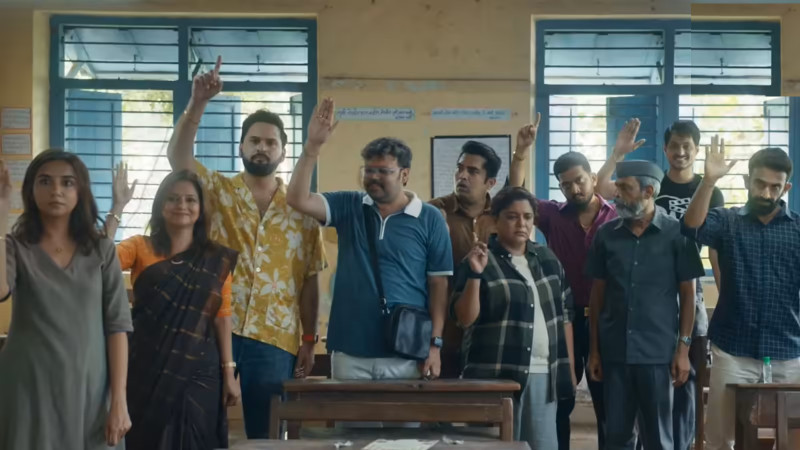
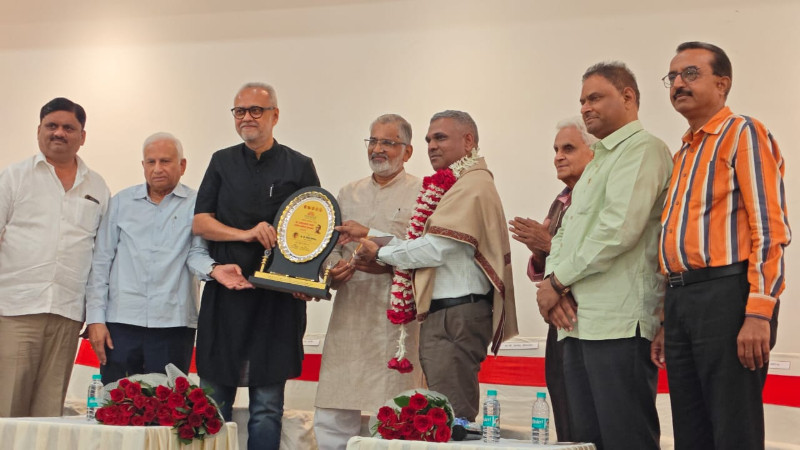
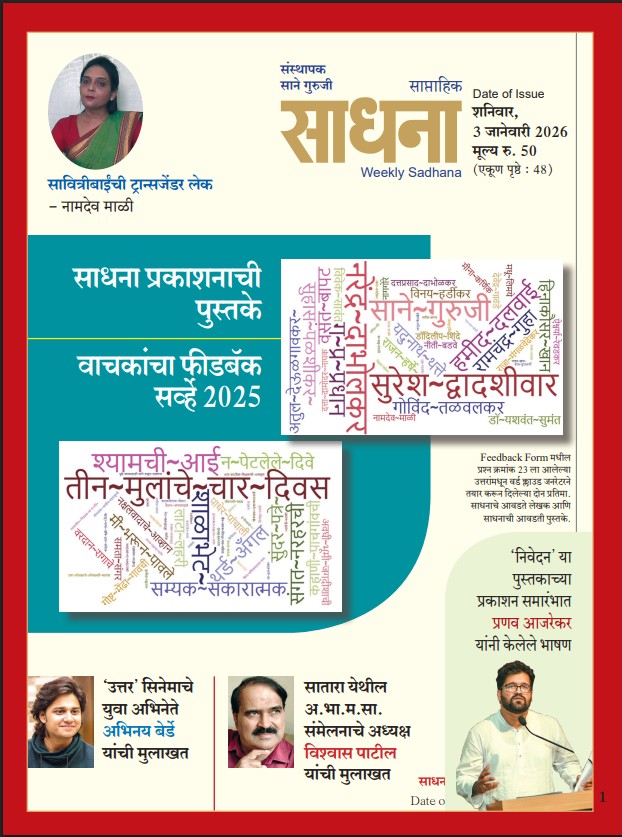













Add Comment